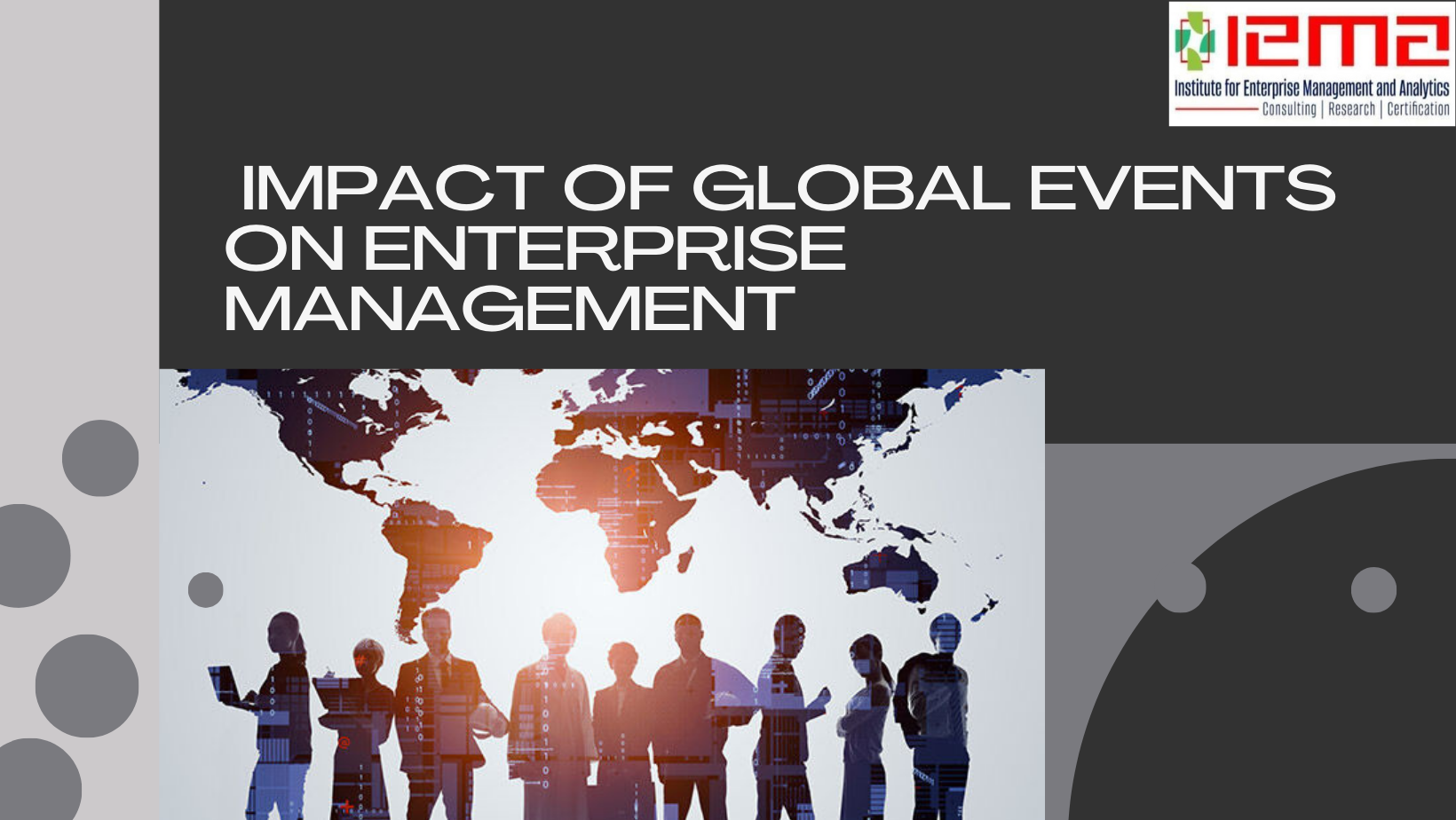The world feels smaller and more interconnected than ever before. From political upheavals to natural disasters and pandemics, global events can have a ripple effect, impacting businesses of all sizes and across industries. Enterprise management, the art of navigating the complexities of an organization, must become adept at adapting to this ever-changing landscape.
How Global Events Can Topple Strategies
- Supply Chain Snags: The COVID-19 pandemic exposed the fragility of global supply chains. Border closures, shipping delays, and raw material shortages can disrupt production schedules and lead to product availability issues. Companies need to diversify their supplier base and explore alternative sourcing options to mitigate risk.
- Economic Fluctuations: Global economic events like trade wars, currency fluctuations, and recessions can impact consumer spending and business investment. Enterprise management needs to be prepared for these shifts by having a data-driven understanding of their markets and implementing agile financial planning strategies.
- Workforce Disruptions: Political unrest and natural disasters can displace populations, leading to labor shortages or disruptions in remote workforces. Businesses need to develop flexible work arrangements and invest in workforce development programs to ensure they have the talent they need to operate effectively.
Strategies for Enterprise Resilience
- Scenario Planning: Proactive enterprise management involves considering various “what-if” scenarios based on potential global events. By anticipating potential disruptions, businesses can develop contingency plans to minimize the impact and ensure business continuity.
- Building Agility: Successful organizations are adaptable and can adjust their strategies quickly in response to changing circumstances. This may involve diversifying product offerings, exploring new markets, or adapting production processes.
- Investing in Technology: Technology can be a powerful tool for navigating disruptions. Cloud computing provides remote access to data and applications, while communication platforms facilitate collaboration across geographical boundaries. Additionally, artificial intelligence can help businesses analyze data and identify emerging trends that may require adjustments.
In today’s interconnected world, enterprise management must transcend the walls of the company headquarters. Understanding global trends and potential disruptions is critical for developing long-term strategies that ensure business continuity and resilience. By adopting a global mindset and embracing adaptability, organizations can weather the storm of unforeseen events and emerge stronger than ever before.
Do you have any thoughts on how global events have impacted your industry or organization? Share your insights in the comments below!





Leave a Reply